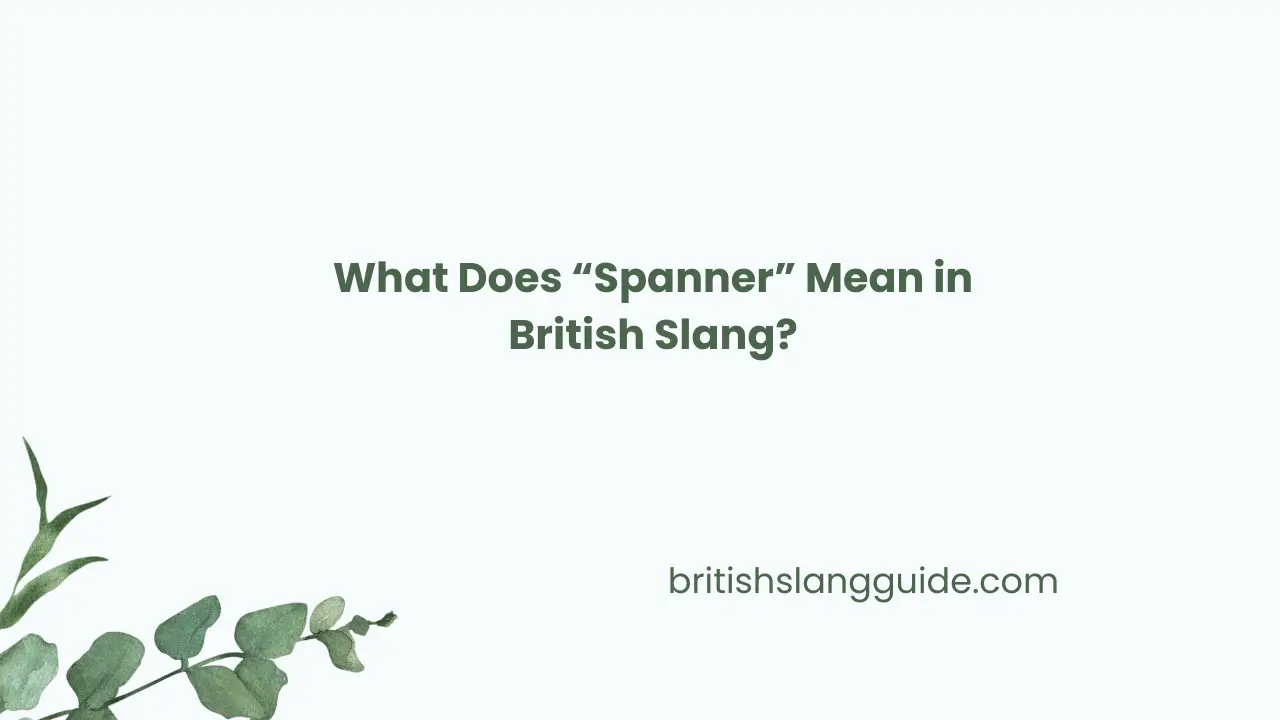| Please Wait Loading ..... |
 |

Ever wondered when people call you a Spanner and you started wondering is it a tool?
Well, NO! The British slang spanner has a different meaning during conversation. For instance, it can be used to ruin someone’s plans or to describe someone who has a lack of intelligence.
So, stick with us and find out the meaning of british slang spanned based on the context and its relation with certain phrases.
Yes, it is an opened-shaped jaws tool used for gripping or tightening nuts and bolts. People also used the word wrench for it outside of North America.
It can be used as an adjustable and tightening tool. But in the UK a tool of fixed size is called a spanner and the adjustable one is known as wrench.
Why do Americans use the phrase throw a wrench in the work? The British slang spanner linked with phrases in two ways;
Techniques for stopping machines:
It originates in ancient times when workers threw a spanner in the machines to stop them temporarily. You just imagine the disruption that occurs when a heavy metal piece is tossed into the well-functioning heavy parts of the machine.
Ruin someone’s plans:
It is metaphorically used in casual conversation to create a mess in others’ lives. Folks use it to describe a person causing disruption, hindrance, and hurdles in their progress or plans.
Yes, it is also used to describe a stupid, foolish, mad, and lack of intelligence person. Someone who does not have the sense to make good decisions. It is metaphorically used like how a spanner is displaced and looked out of place.
There are two theories suggested about the origin of the spanner;
It was the first time used in the writing of R.Ward in 1639.
The British slang spanner has different meanings based on the context. But it is most commonly used for a tool which is also known as a wrench.
In daily talks, spanner has connections with some phrases that explain the real-life mess created by people. As slang, it tells us that our ancestor’s mistakes last lifetime. How they used spanners to break down the machines so they could take a little rest. But it also told how much hard time they faced as laborers.
Not too much, it is used light-heartedly to mention someone silly and half-wit.
Yes, it a British slang.
In London, it means stupid, foolish, or prone to making mistakes.
Comments